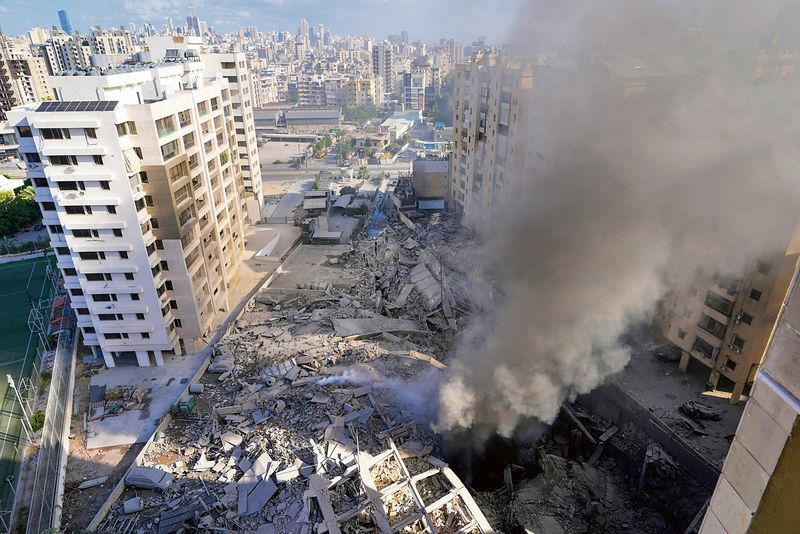Iran will attack Israel again if necessary, says Iranian supreme leader
NEW YORK (TIP): Data from a conflict monitoring group shows that Israel, which is at war with the Iran-backed militant group Hezbollah, is carrying out the “most intense aerial campaign” outside of Gaza in the last two decades.
To put it into context: Over the course of two days, on September 24 and September 25, the Israel military said it used 2,000 munitions and carried out 3,000 strikes. In comparison, for most of America’s 20-year war in Afghanistan, the US carried out less than 3,000 strikes a year, barring the first year of the invasion, according to data from Airwars analyzed by CNN.
Here is the latest situation.
Israeli airstrike on Lebanon-Syria border: The strike, an official said, destroyed the road leading to the Masnaa crossing with Syria, a major transport link that tens of thousands of people have used to flee the escalation of hostilities. Israel also struck the Masnaa crossing area in its last all-out war with Hezbollah in 2006. The Israel Defense Forces said it had struck a tunnel used for smuggling weapons into Lebanon, but the country’s economic minister said most weapon smuggling takes place through “illegal channels, illegal roads” and not the main crossing. Taking out the only land border entry point into Syria has left Lebanon more isolated, adding “another layer of desperation” for those fleeing and seeking shelter, Amin Salam told CNN’s Isa Soares.
Meanwhile in Iran: Supreme Leader Ayatollah Ali Khamenei led a rare commemoration service for slain Hezbollah leader Hassan Nasrallah as part of Friday prayers in Tehran. Khamenei said Iran will strike Israel further if necessary, after launching its largest-ever attack on its regional adversary Tuesday. Thousands of people gathered at Tehran’s Grand Mosque for the prayer service, according to the broadcast from state media outlet IRIB.
No public funeral yet for Nasrallah: A source close to Hezbollah told CNN “nothing has been decided” about the time and place of Nasrallah’s burial, as Israel’s intensive bombing campaign has battered many Shia-majority neighborhoods and towns in Lebanon, leaving no conceivably safe place to hold it.
Hezbollah attack: Israeli police reported heavy damage in northern Israel following a Hezbollah rocket barrage on Friday. Several fires broke out but no injuries were reported. Hezbollah said it had targeted the city of Kiryat Shmona and surrounding areas with a rocket barrage “in defense of Lebanon and its people, and in response to the barbaric Israeli assaults on cities, villages, and civilians.”
Israel tells more Lebanese residents to evacuate: Residents of more than 30 villages in southern Lebanon were asked to leave their homes and move north on Friday. Some of the villages listed in the new order had been included in previous Israeli warnings. The IDF would notify residents when it was safe to return to their homes, Arabic-language spokesperson Avichay Adraee wrote on X. About 1 million displaced people in Lebanon have sought shelter from the fighting.
More Hezbollah members killed: The IDF said it killed the head of Hezbollah’s communication unit in strikes on southern Beirut on Thursday afternoon local time. Hezbollah has not yet made any announcements about casualties. The IDF says it has killed “approximately 250” Hezbollah militants since launching its ground offensive in southern Lebanon earlier this week.
Health care “under attack”: Dozens of medical workers were killed over a 24-hour period of Israeli bombardment in Lebanon, World Health Organization Director-General Tedros Adhanom Ghebreyesus said Thursday. At least 37 health facilities have closed in southern Lebanon and several Beirut hospitals have evacuated staff and patients, with health and humanitarian workers struggling to provide care with limited supplies. “Health care continues to come under attack,” he said at a briefing in Geneva.
(With inputs from CNN)
